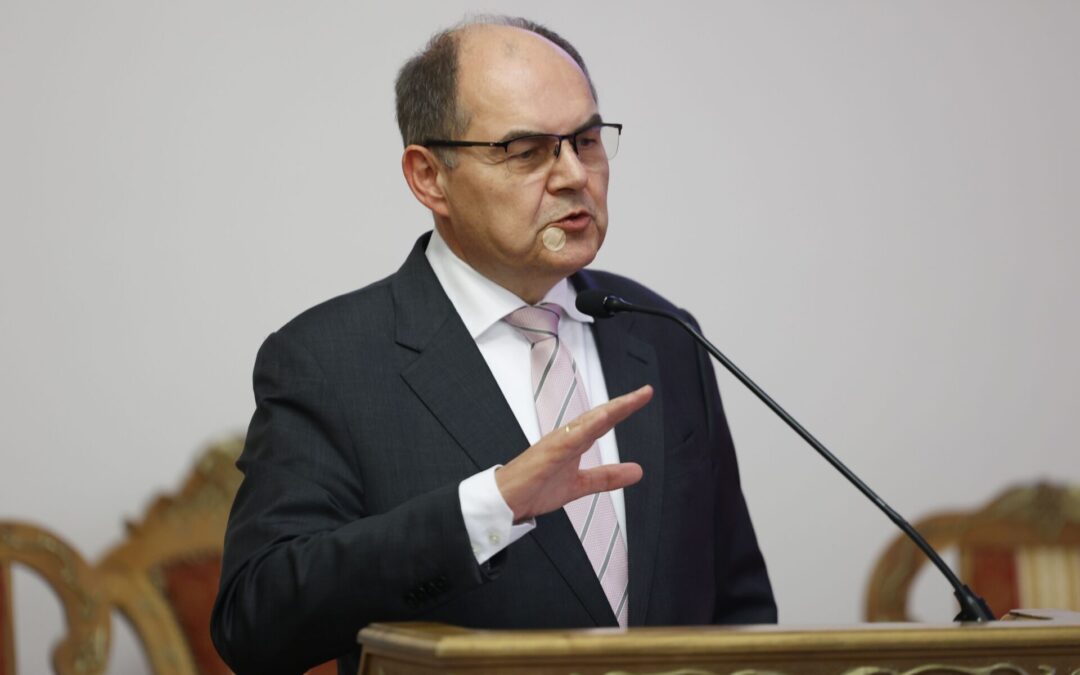New York/Sarajevo (FENA) – United Nations Secretary-General Antonio Guterres forwarded to the President of the Security Council Pedro Comissário Afonso the 65th report of the High Representative on the implementation of the Peace Agreement in BiH.
The report covers the period from October 16, 2023, to April 15, 2024. High Representative Christian Schmidt states that the reporting period was marked by progress of Bosnia and Herzegovina toward integration into the European Union, but also unprecedented attacks on the General Framework Agreement for Peace (GFAP).
The report states that the decision of the European Council to open negotiations with BiH was a welcome contribution to efforts to protect the stability of the country in the light of geopolitical and internal challenges, and that it gives impetus to its rapid progress. This should also be seen as recognition of the efforts – primarily from political parties based in Sarajevo forming the coalition, the so-called Troika – to engage responsibly and constructively for the common interest, i.e., the enhancement of BiH’s EU aspirations and thus the well-being of all its citizens. The ability to overcome individual, party, ethnic, or entity interests for the common good is not a weakness but a strength. It must be encouraged rather than punished or exploited. It must be set as a standard for political leadership in BiH.
The decision of the European Council changes the game in terms of opportunities opening up for BiH. The High Representative has been actively working to support this decision in terms of the conditions that must be met.
However, this is insufficient to counter threats to the stability of BiH. The authorities of the BiH entity, the Republika Srpska (RS) led by RS President and leader of the SNSD Milorad Dodik, actively undermine the state of BiH, its competencies, and institutions, and thereby the GFAP.
Their threat to paralyze state organs by blocking their work and decision-making represents a threat to the functionality of the state and its ability to fulfill its responsibilities. Their threat to continue with the unilateral withdrawal of RS from the constitutional, legal, and institutional framework of the state – including the Armed Forces of BiH and the state tax, judicial, and electoral system – represents a threat by establishing a parallel framework of RS. All political actors must express their unconditional commitment to the GFAP, and to BiH and its statehood and territorial integrity.
– This commitment is partially lacking – warns Schmidt.
Unprecedented pressure on judicial institutions continued. In addition to promoting the abolition of the Court of BiH and the Prosecutor’s Office of BiH, the ruling coalition of the RS undermines the BiH Constitutional Court as the guardian of the constitutional and legal order of BiH.
Challenges to the institution and mandate of the High Representative also continued unabated. This includes incendiary rhetoric, but also actions to undermine the respect for international ad hoc institution of the High Representative, and thus his ability to implement the GFAP mandate. Representatives of the ruling coalition in RS blatantly abuse BiH institutions for the advancement of this goal. Final jurisdiction for interpreting the GFAP is entrusted entirely to the High Representative, not the entity.
The actions of the ruling coalition parties in RS go hand in hand with their legislative initiatives within RS itself, which limit civic space in order to silence, discourage, threaten, and ultimately penalize different political opinions.
If continued, these actions could lead to the de facto if not de jure dissolution of the state of BiH, for which RS President Milorad Dodik continuously advocates. This would be a scenario with severe consequences.
The overall political environment is fertile ground for threats to transitional justice. There has been a regression in public efforts to confront the past and an alarming level of ethnonationalist historical revisionism, denial of genocide, and other war crimes as well as glorification of war criminals. These trends have been closely linked with the overall backslide of democracy, respect for human rights, and the rule of law, increasing distrust and polarization within society. A hallmark of this is the constant decline of inter-community relationships in Srebrenica over the past two years.
Incidents against returnees continued. There was a steady influx of reports of violence or provocations against the returning population, which further fuels the sense of insecurity among this population, it is stated, among other things, in the report of the High Representative to the UN Security Council. (14.05.)
 go to the original language article
go to the original language article
